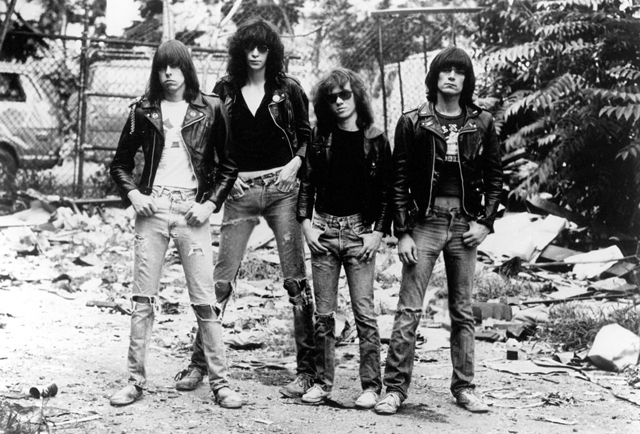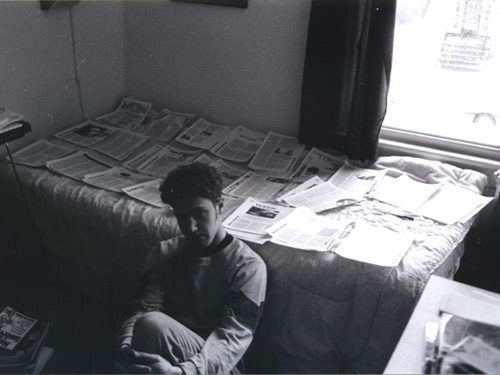In the past year, I have been building my business – working with publishers and writers to help them grow online engagement with their communities. It has been an incredible experience so far, and today I wanted to share a little bit of what I have learned in this process, and how I think it can help writers – or anyone really – who are trying to build their careers in an otherwise busy life.
In the months leading up to the launch of my business, I spoke with many other business owners to ask them for advice and hear their story. I also watched hundreds of interviews with entrepreneurs at Mixergy.com. One thing became clear to me, and it was surprising to learn.
I was looking for “the secret” to launching something successfully, and not falling flat on my face. I had lots of questions, but they were mostly tactical in nature, dealing with common issues such as marketing, product development, customer service, that sort of thing – all looking to minimize the risk of such a venture.
But I kept hearing something again and again, sometimes said plainly and openly, sometimes hidden between the lines:
The hardest part of building something is balancing your emotions and staying motivated.
That day in and day out, when there is no structure, no promises, quiet times, busy times, good news, bad news, people who don’t take you seriously, people who go well out of their way to support you… that through all of this, you have to constantly stay motivated, ensuring everything is moving forward.
I would hear story after story from other creators – the sleepless nights, the constant fear of financial concerns, the trends that stacked up against them, the unexpected issues that came up on a near daily basis. That there was always a time when everything looked like it would absolutely fall apart – there was no way to make it work.
And yet, for each of these people I heard from, things DID work out.
To build a successful business or a successful writing career the one resource you need most is not money, but emotional capital and motivation.
I feel like this gets glossed over – we explain our successes and failures by vague things such as “the economy” or some specific product feature or marketing tactic. And yes, these things do affect what we build. But everyone who has ever inspired me had been presented with a challenge that was commonly thought to be insurmountable. And yet, they found a way, largely due to their motivation to continue searching for an answer long after others had stopped.
This past year has been the most incredible one of my life – running a business that is 9 months old, and being the father of a 7 month old son. I can’t even tell you how happy I am, even though I seem to be doing everything backwards: giving up a nice stable job just as I am starting a family.
I talk to a lot of writers – passionate people with ideas, trying to find balance, or at least an imbalance that leads them to their goals. And they often achieve those goals, unless they lose one thing: their motivation.
It’s easy to do – the world seems fraught with demotivating cues, often coming from those looking to help. That the process of creation is often a long lonely slog without any of the drama or elaborate costumes that come with other journeys, such as Lord of the Rings. Most people’s journeys are filled with unanswered email, a pile of dishes in the sink, kids calling to be picked up, an overgrown lawn, and an overdue oil change appointment.
Through all of this: one must have the motivation to keep slogging on. That the secret to creating your work and making it a success – requires the motivation to do so above all else. That this is INTERNAL – something that must come from deep inside you everyday – not some external tactic. (those certainly help, but are of little use without the motivation to follow through.)
For me, Mixergy.com has been an incredible resource for building my career. It’s a site where one guy interviews an entrepreneur for an hour each day, and shares their discussion via video. So every day, I hear an hour-long oral history of one person’s journey from having an idea to making it a reality. The interviewer, Andrew Warner, asks very specific questions about how decisions were made in the early days, how someone got through months of sleepless nights when their idea seemed fragile, their funds limited, and their responsibility to others such as family always tempted them to give up the idea of building something new, instead to take a “safe” job that left them unfulfilled.
How did these people succeed? The people Andrew interviews are simply those who kept at it. At times, they may have been hundreds of thousands of dollars in debt. They may have had lonely failure after lonely failure. But they pressed on. And eventually, they found success.
One of those people is Rand Fishkin, who recently shared this quote in another setting: “This is one of the lessons of entrepreneurship: If you stick with these things, and you keep finding a way to live, you will make it.”
All this to say: I keep this in mind every day. That the only thing that will keep me from my dreams is me.
And the second thing here… the only thing that will help me achieve my dreams besides motivation, is the incredible good will of those around me. I’m 9 months into my business, and things have been going unbelievably well. Yes, all those late nights and early mornings working are part of the reason. But mostly, I attribute success to the incredibly generous people who have supported me at every turn. There isn’t a day that goes by that I don’t thank someone for going out of their way to lend a helping hand.
Many of these people are trying to build something of their own, and I’ve found that the more we help each other, the more we fuel each other’s motivation.
So thank you to everyone who has been a part of my life in the past year or so. I can’t even tell you how much it has meant to me. If there is anything I can do to help you build something, just let me know.
-Dan


